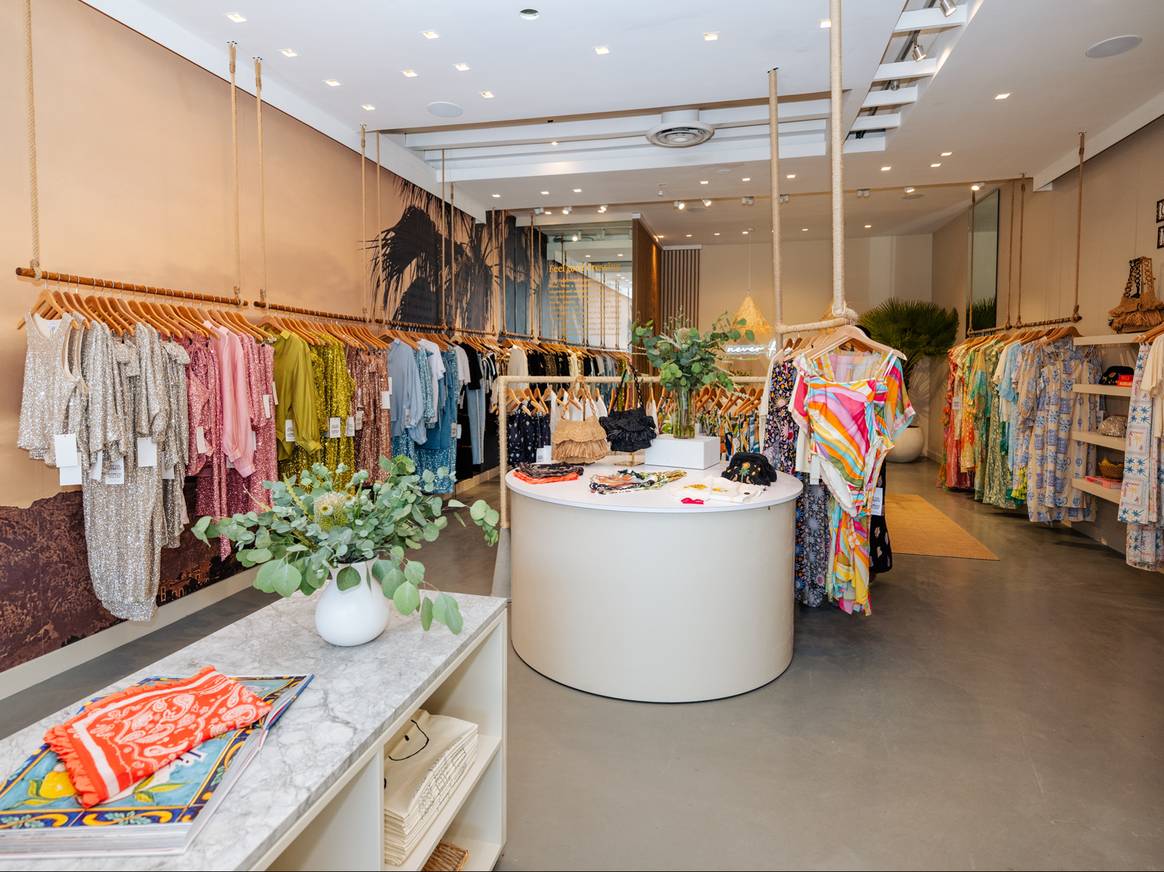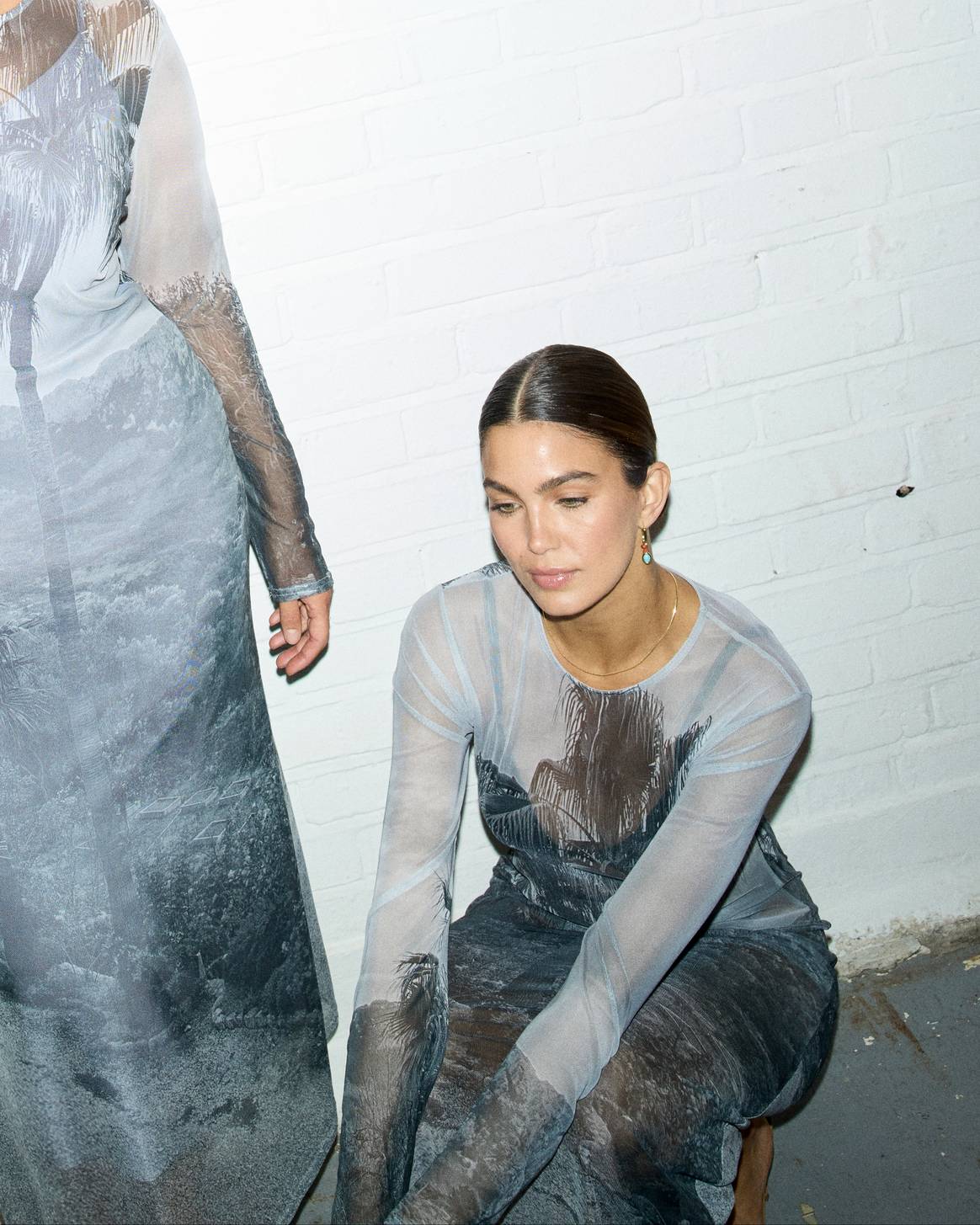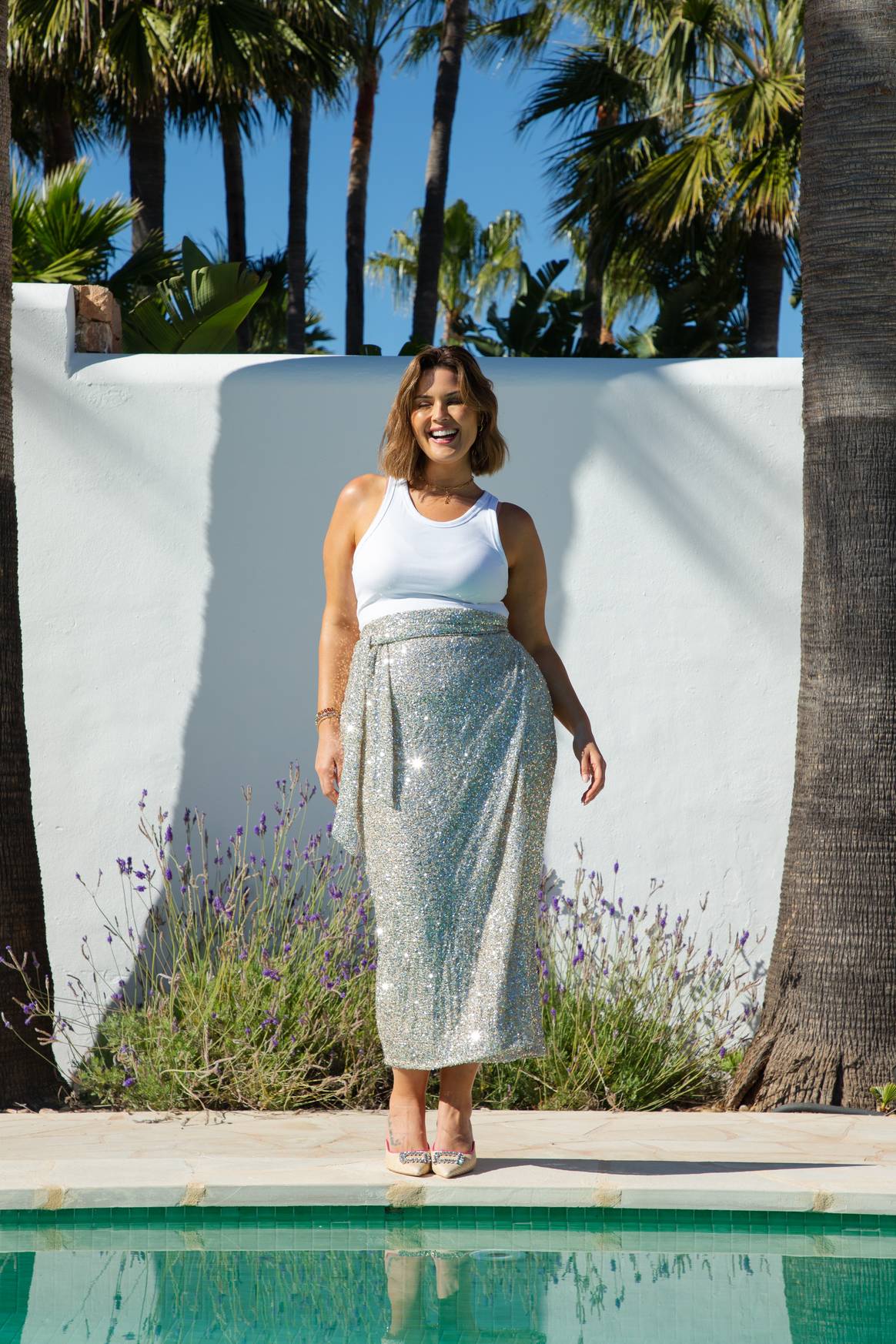Never Fully Dressed (NFD) is a success story for the British fashion industry. What began as a market stall on London’s Portobello Road is now a global player, having recently opened their second store in the US, their first on the West Coast. Despite the company’s apparent growth, founder Lucy Aylen remains committed to her mission of maintaining an accessible, community-driven essence to the brand.
“That community idea started at the market, consciously or unconsciously,” Aylen explains in an interview with FashionUnited. “As an entrepreneur – although I only started calling myself that in recent years – it can be quite lonely when you start without colleagues. That community was built at the market, surrounded by other traders and a growing customer base, many of whom still shop with us and have been on the same journey with us.”
US store openings highlight changing retail landscape
While NFD’s presence is deliberately rooted in its small business roots, its growth is undeniable. The company’s e-commerce platform, for example, has seen 47 percent annual growth. Its geographic reach also extends beyond its UK homeland, with further presence in core markets such as Ireland, the Middle East and the Netherlands. However, it is the US that currently has Aylen’s attention.
After a series of pop-ups in New York and Los Angeles to test the market, the brand chose both cities as permanent locations. While New York got a flagship last year, NFD opened its first store in LA last month, bringing its Mediterranean charm to the West Coast on a permanent basis. Setting foot in the City of Angels was a natural fit for the brand—and for Aylen, who lived there briefly during her teenage years.
“We’ve grown so organically in the U.S.,” says Aylen, who describes the two stores on each coast as a “hug” for the country, as well as a “strategic” decision. NFD had already established wholesale partnerships with Revolve and Anthropologie in the region, so it had a good sense of what U.S. consumers were looking for. They began by eliminating potential challenges that might have hindered their future plans, whether it was marketing or product lock-in.
The U.S. now accounts for 20 percent of NFD’s total revenue, a figure that takes into account not only in-store revenue but also the brand’s now-expanding community that stretches coast to coast. “The stores have really allowed us to keep that community focus and feel rooted in the U.S., so it’s become a new home,” Aylen adds.
Renting becomes the next step
Of course, the brand and Aylen have adapted to the demands of the rapidly changing industry over the years. After the street markets, e-commerce was a natural addition to the brand’s ecosystem, only to be outdone by the UK’s first local store, which at the time accounted for 80 percent of sales. The pandemic reversed this trend and shifted everything online again.

But it’s opened up new avenues for brands and NFD itself, which last week took its first steps into the increasingly popular rental market. Thanks to a new partnership, NFD products are now available to rent through Urban Outfitters-owned Nuuly, with seven pieces marking the first U.S. launch. “We’ve never done rentals before, and pre-owned is a big program for us, but it’s been part of the conversation for years,” Aylen says. “It’s exciting for us to see how that market works for the brand, and it’s going to grow from here.”
The launch only underlines Aylen’s emphasis on organic adaptation and listening to the market, which has been turbulent in recent years due to pandemic-related issues and the resulting cost crisis in the UK and beyond. In responding to this, NFD is not relying entirely on specific trends, but is placing importance on an overarching five-year plan to determine what to work towards.
“We’re a very agile business, but we still know our customer, so we buy accordingly,” Aylen explains. “We don’t work too far ahead. We’re currently working on spring/summer 2025, which is the furthest we’ve ever worked. We work on all timeframes at all times, so both long lead times and responding to a gap or an emerging trend. We’re not too trendy, but if there’s something we want to develop or trade because it’s had a good response, we still have factories that we can do last minute trades with. For example, leather has a longer development time, but woven fabrics can be made much quicker and we have a great factory for that in the UK.”

There’s also no single demographic that NFD is targeting. The brand aims to remain inclusive of its broad audience of women in their 20s to 70s. While this can present some challenges in terms of marketing and fit, the brand prides itself on its range of flexible, multi-wear products, some complete with closures or removable elements that allow for custom styling. However, one trend that Aylen has seen across the brand’s consumer base is a sense of newfound maturity within fashion, which has ultimately contributed to the longevity of clothing, supporting Aylen and NFD’s more seasonless, less trend-driven approach to design.
“I think consumer behavior has changed in the sense that people are much more conscious of how they shop, and not necessarily from a sustainability perspective, but even economically,” she adds. “People are more conscious of everything from the planet to the wallet. You have the real value of a product and the perceived value of a product, which has to be high. It just makes us work harder on a product level compared to four years ago. It’s a different ball game and part of that is the education of the designers we work with.”
Shop in Miami and London Fashion Week participation on the horizon
This renewed focus on product has been reflected in the company’s financial results, Aylen says, with modest price increases not being met with much resistance from consumers. “That’s encouraging,” she adds. “I think our pricing strategy has been broadened because we don’t want to alienate the consumer who was on our journey with us previously when a dress was £79[€94]whereas now we’ve made it sustainable with better internal processes, so it’s now £120. As long as you keep that open communication and are honest about your pricing, you’re going to continue to attract the right customer.”

Consumer awareness directly informs Aylen’s choices for NFD’s next steps. For example, while New York and LA will be the primary cities, a store in Miami is next on the list. The city reflects the brand’s love of color and stays close to South America, a growing market for NFD. However, this process in the U.S. as a whole is still a learning experience for the brand, as consumer demands and state legislation currently dictate moves in the region.
Despite this, this growth comes on the back of the brand’s strong financial performance overall, with trading up 30 percent year-on-year in the current period. Ireland, Germany and Australia were highlighted by Aylen as increasingly strong performers, but the US remains the focus of its current efforts. There are also plans to further expand NFD’s offering with new product categories, such as its recently launched swimwear line; sleepwear, which is already selling strongly; and activewear, each of which will be released in multiple drops over the coming year.
2024 will also mark NFD’s first Fashion Week participation, with plans to take the brand to September’s edition of London Fashion Week in what Aylen discreetly described as a “fun activity.” “It’s going to be more focused on community than on driving sales and product,” she noted. “It’s really just about female empowerment.”

This article was previously published on FashionUnited UK. Translation by AI and editing by Caitlyn Terra.
Source: fashionunited.nl


